Gardening with God
A Metaphor for what it means to be Human
I often asked, “Dan, you are so wise…tell us the meaning of life.” And by often I mean at least once a day. In my imagination.
To be honest, I don’t think I’ve ever been asked that. But if I were, I don’t think I would reply with an idea or a sentence, but with a simple metaphor: gardening.
After all, it is no coincidence that after God made the man and woman he gave them a role: to be gardeners.
The Lord God took the man and put him in the Garden of Eden to work it and take care of it. — Genesis 2:15
Now, let’s think about this; in the chapter previous to this, we see God creating all things: seas and mountains, whales and swallows, oaks and ivy. In fact, God has created nothing less than “the heavens and the earth”.
So why would God need a gardener? Surely the kind of being who calls the sun and moon into being could handle the task, right?
Here is why: out of love.
All creation is an overflowing, an effusion, of the love of God. Humans are created to be a special object of that love, or, perhaps better, to have a special role in the arena of God’s loving creation. They alone are described as being made “in God’s likeness” so that they can “image” God throughout all creation. That is, by their likeness to God and connection to God and through their godlike gifts they can rule over creation with God, or, better, to be the way God rules over creation.
Then God said, “Let us make mankind in our image, in our likeness, so that they may rule over the fish in the sea and the birds in the sky, over the livestock and all the wild animals, and over all the creatures that move along the ground.”
So God created mankind in his own image,
in the image of God he created them;
male and female he created them.
But what does it mean to “rule”? That is the question, and gardening is the answer.
In our fallen, human culture, to rule over something is an act of force, if not violence. And the goal of that force is to make others (or other things) do my bidding.
But that is not how a gardener works. They rule over their plot of ground, but not by force, but by creative work.
Let me explain by using my own backyard.
Amy and moved into this house five years ago. It was a new build, and the only part the builders did poorly was the landscaping. You see, they finished the build and the landscaping some six weeks before we could move in. And all they did for the back and side yards was to throw grass seed on the ground and cover it with straw. And so it sat un-watered and windswept for 6 weeks.
By the time we moved in the seeds and most of the straw had blown away; no grass was growing at all. There were no trees or bushes. The side and back yards were both simply dry, bare dirt.
But we had a plan for this little plot of land; we could see not only what was there (dry, barren soil) but what it could be (a lovely plot, filled with grass, trees, shrubs and, especially, flowers).
That is what it means to be human. It is not simply a certain trait or two that distinguishes us from other mammals or animals. It is an entirely different way of interacting with the world. Other species take the world as it is: reality is simply the brute fact that they must adapt to. Yes, beavers make dams bees make hives and robins make nests, but this is an instinctual drive (as evidenced by the fact that all robins make nests and all robins make the same kind of nest) driven by a need for survival and reproduction. This is very different than humans who:
Conceptualize a different reality than the one they see
Make a value judgement that a different reality would be better (and not just for survival) than the reality before them.
Choose between different possible realities based upon their personality, values and sense of beauty.
Problem solve to make that reality possible
Use abstract language to communicate that hypothetical reality to others so they can assist.
Finally, use their reasoning and resources and teamwork to bring about that reality.
This is what it means to rule over creation: not to exploit it, but to improve it.
Gardening is a wonderful, God-given metaphor for this. Amy and I looked at the plot of land we now had ownership of. We pictured in our mind the ways we could make it more lovely. Not out of physical necessity, but out of a love for beauty; out of a desire to be able to appreciate and expand the beauty of certain trees and plants we love; out of a desire to make a place where pollinators could flourish.
So we choose what it should look like and we communicated this to some others that could help us in various ways, and we got to work.
Again, gardening is a metaphor; we are not called to quit our jobs and become professional landscapers. The metaphor points to the way to be human, not the exact job description as a human. The way of seeing how the goodness of this world and our society could be increased; how they could become so much more beautiful, both in physical beauty and moral beauty; how justice can flourish like a well-tended plant. And then using our God-given gifts to make that happen.
This is our glory as humans: using our freedom, rationality and imagination to make our world and our culture more and more what they can and should be.
Gardening with God: seeking God’s help and wisdom to transform our world. And not because God needs it, but because, out of love, He shares with us the dignity of causation.
All praise to Him.



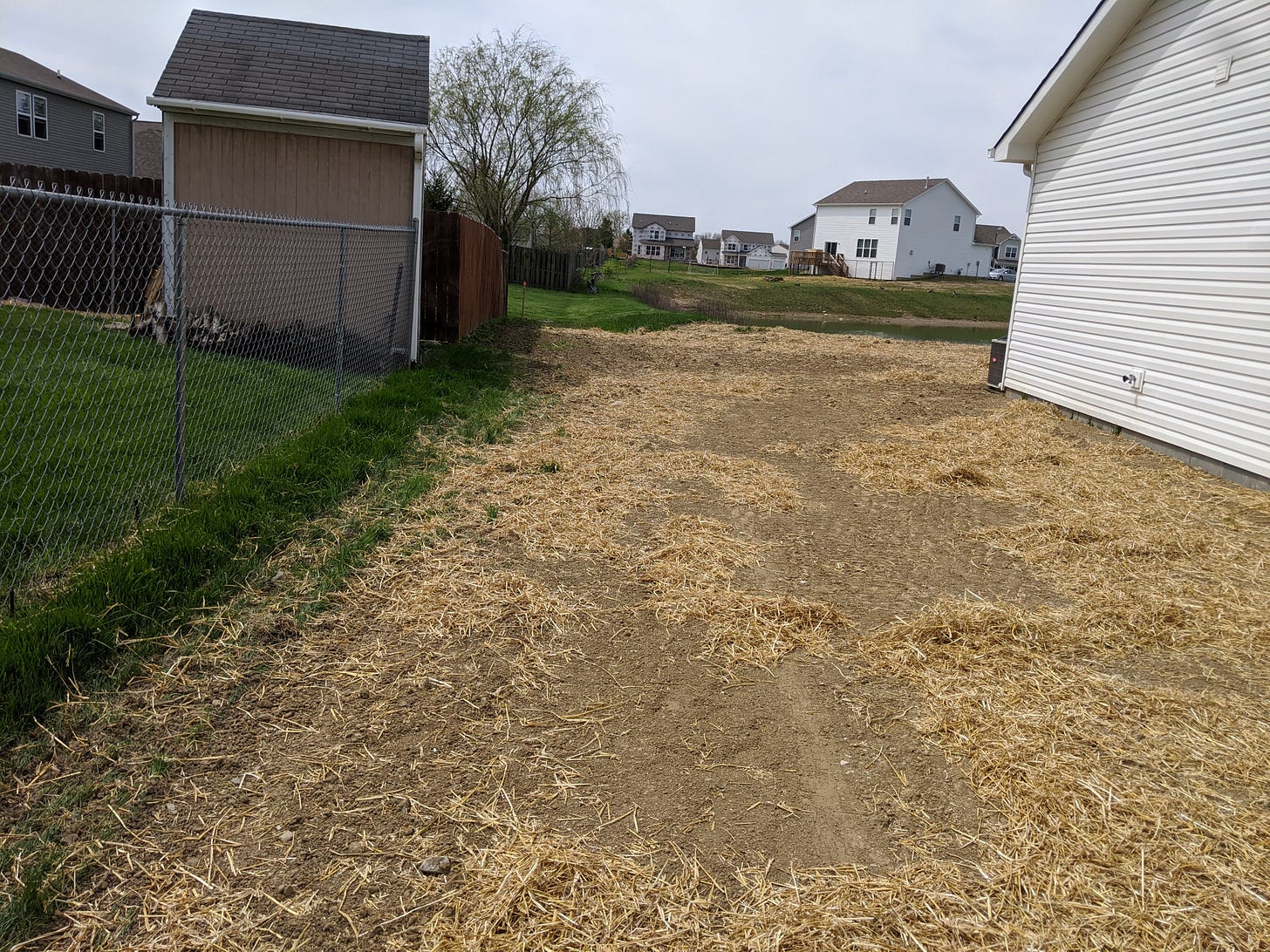
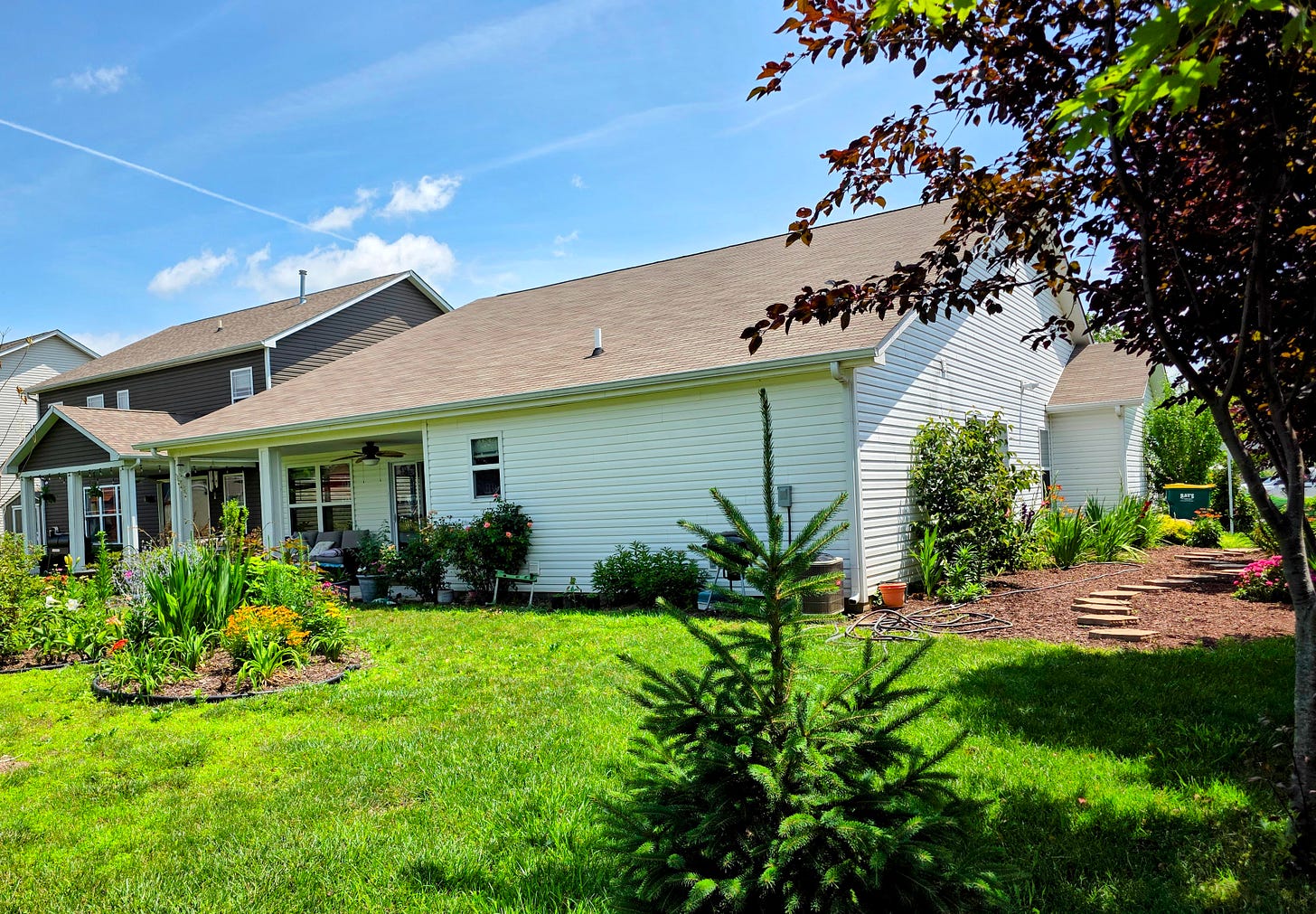

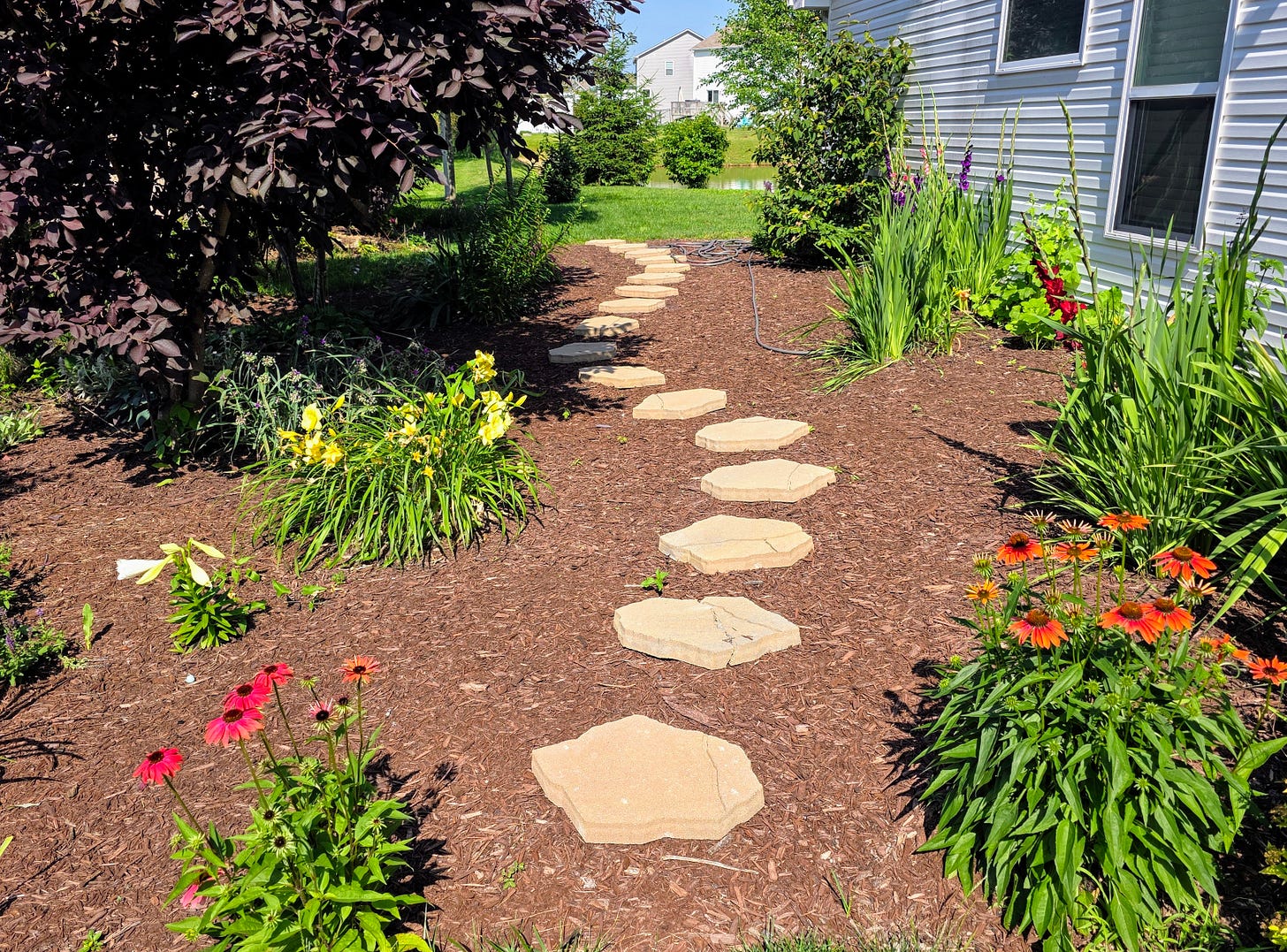
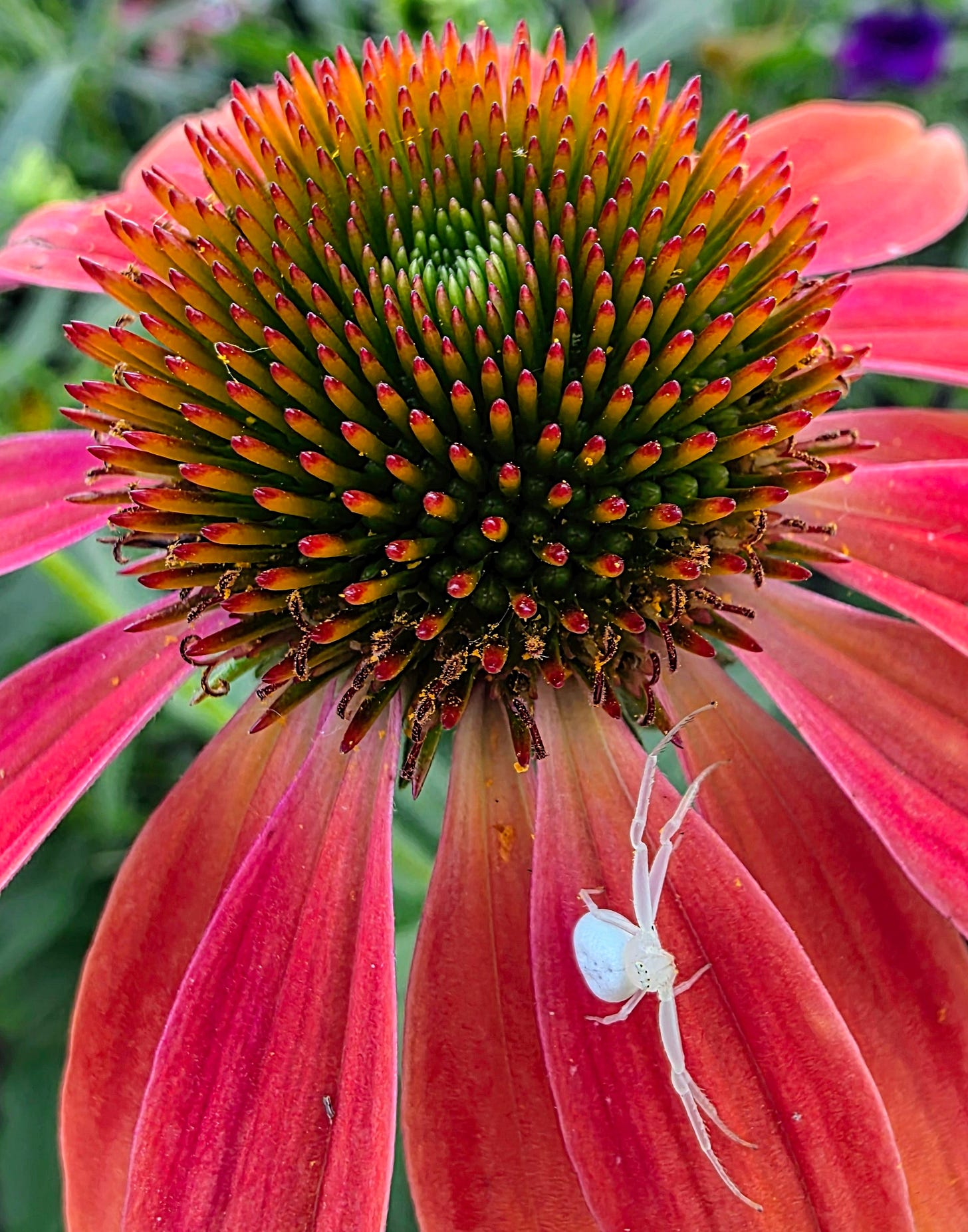
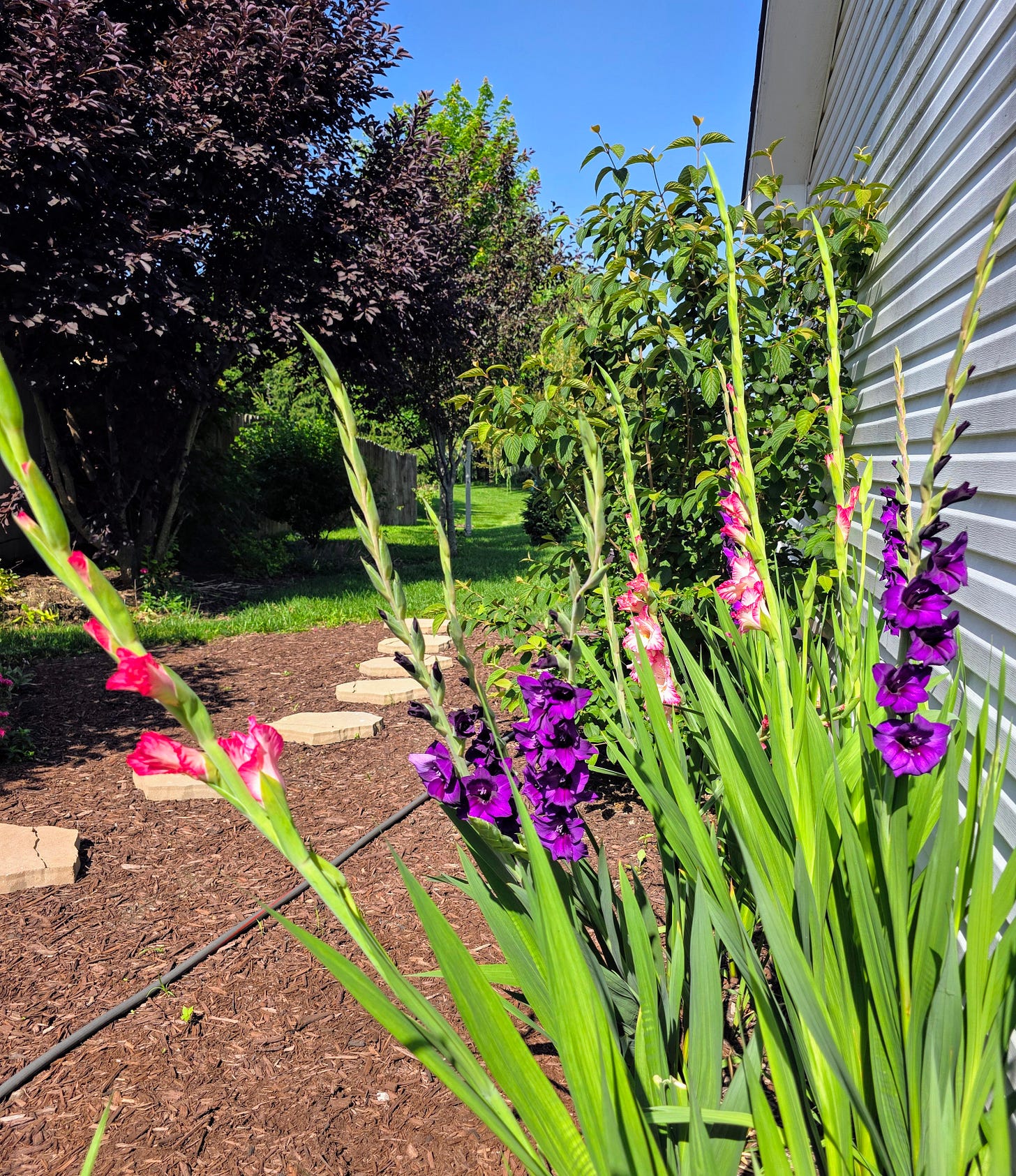
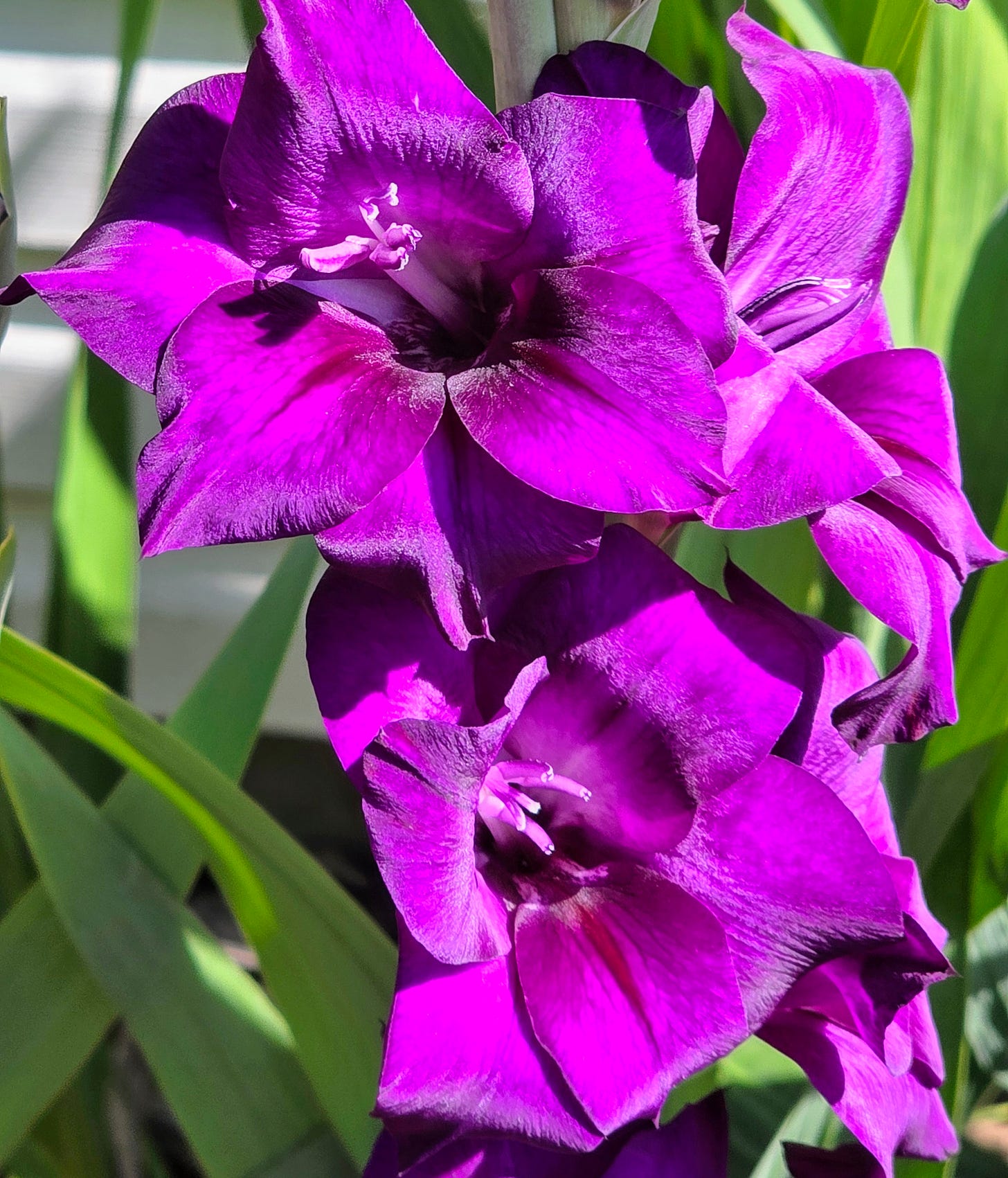
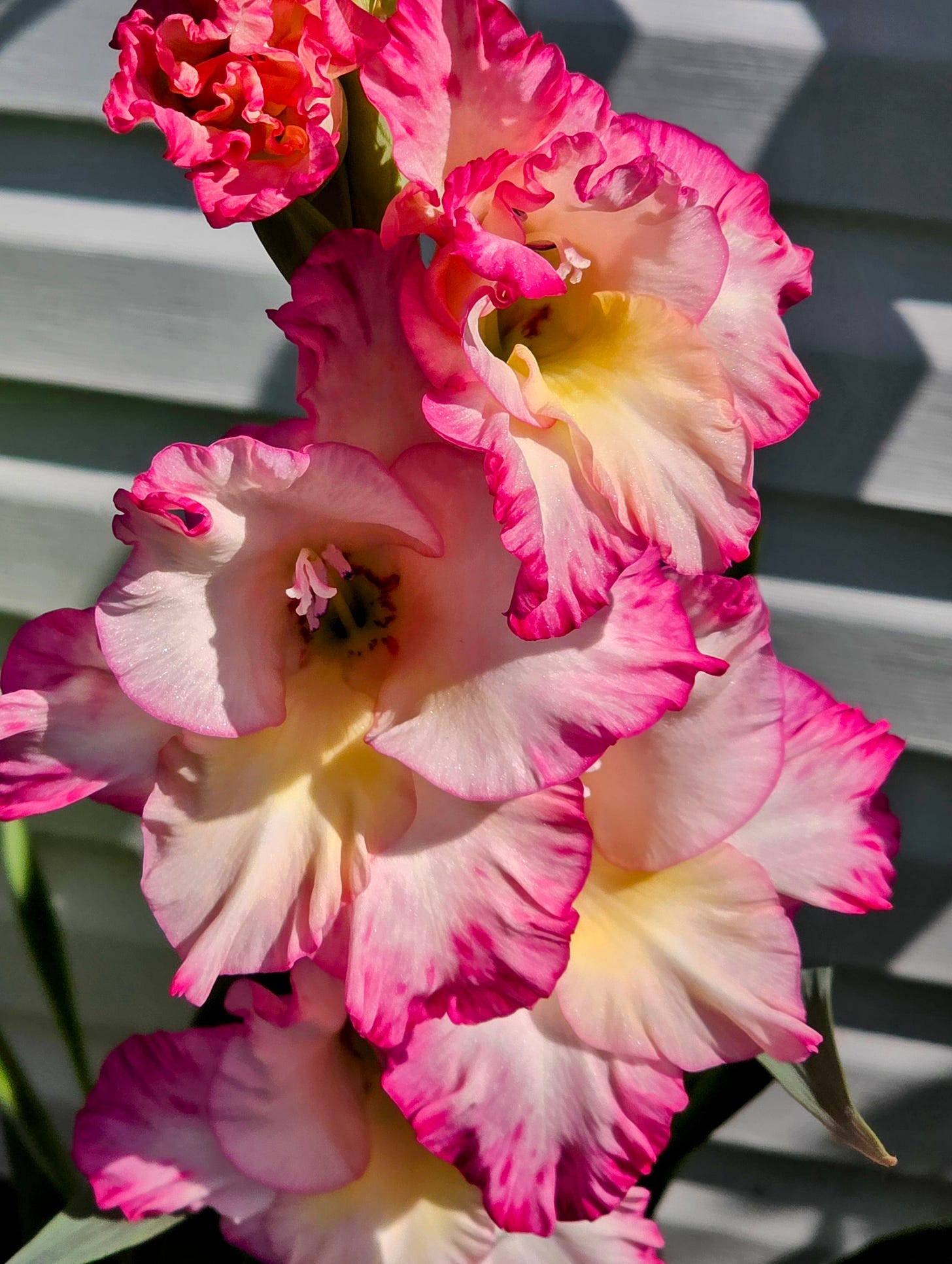
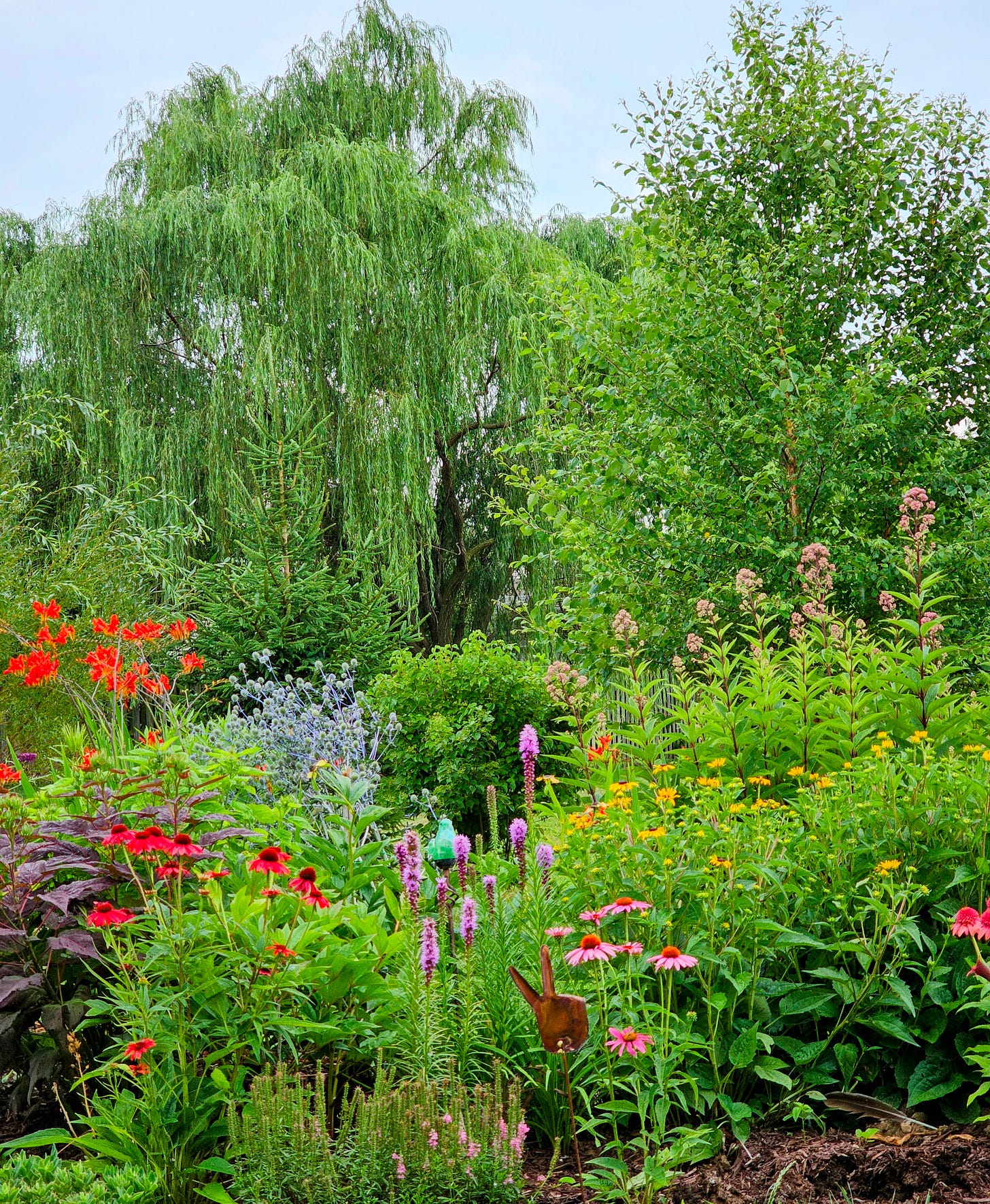
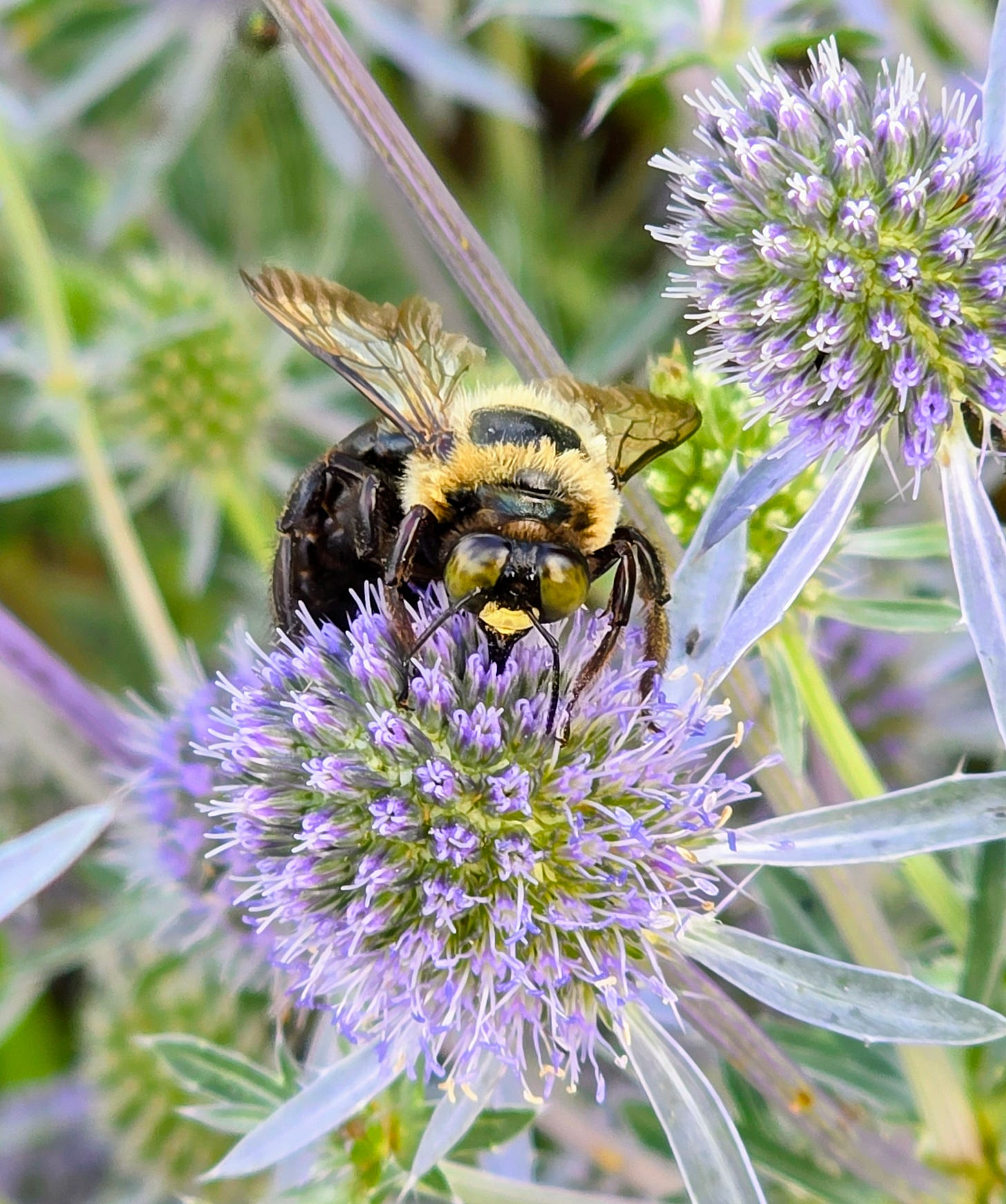

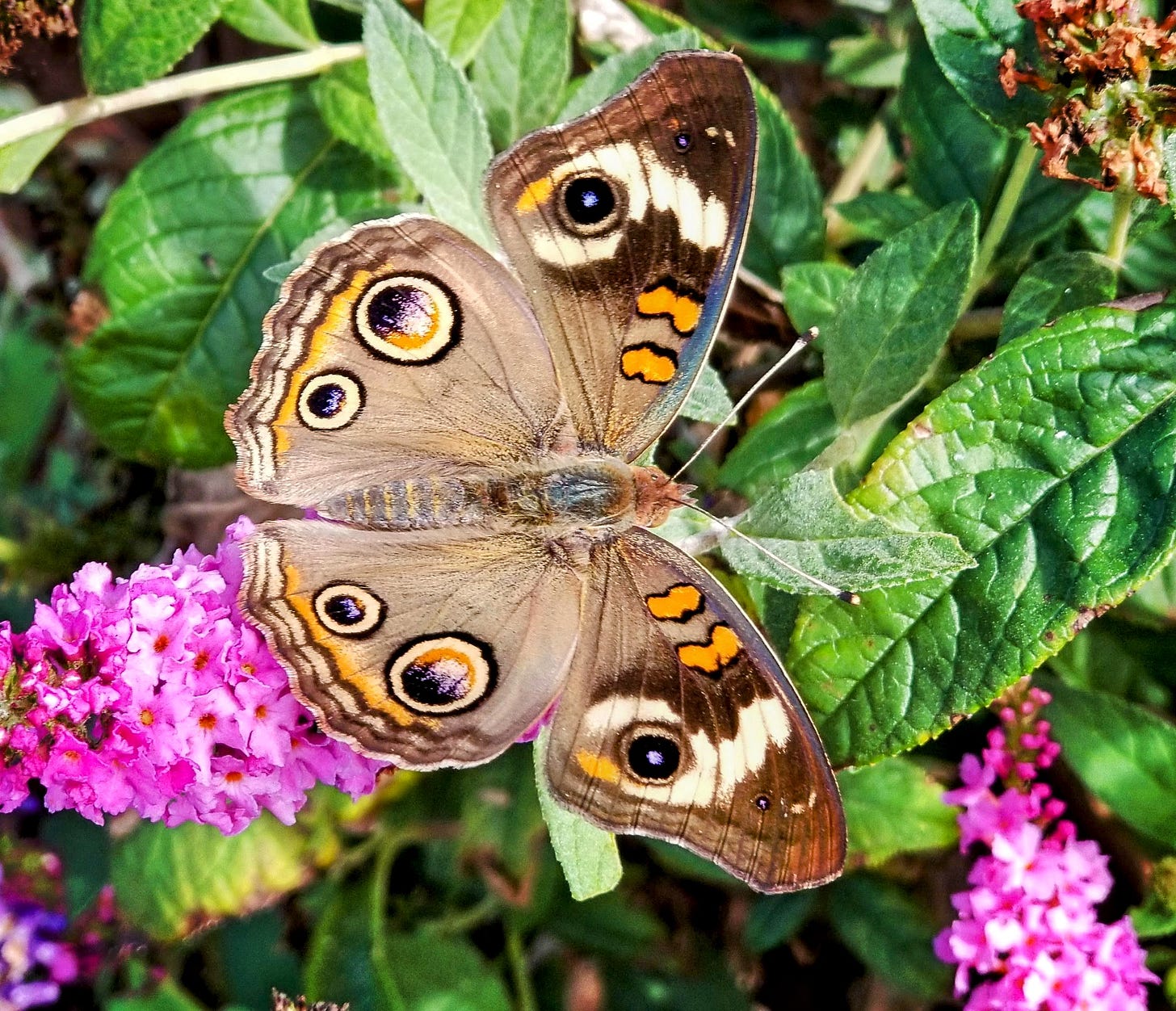
I am a bad gardener, a brown thumb extraordinaire.
We enjoyed reading today's post...since we also enjoy gardening (on a much smaller scale)! Your garden is beautiful. Thank you, too, for your encouraging words.